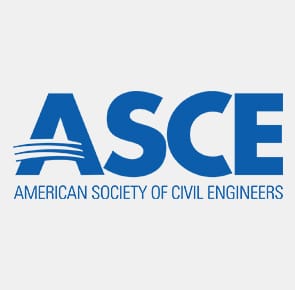What Does a Career in Civil Engineering Entail?
Start your civil engineering career with a four-year accredited degree, including online options. To qualify for state licensure, select a program accredited by the Accreditation Board for Engineering and Technology (ABET). Since licensure requirements vary by state, verify them carefully - accreditation is crucial for employment, especially for online programs.
As a civil engineer, you’ll tackle exciting and complex projects, from rebuilding bridges in rural areas to creating tunnels for urban water management. Civil engineers also play a key role in environmental and humanitarian initiatives, such as addressing Haiti’s post-earthquake cholera crisis. You may work on groundbreaking solutions for alternative energy or water pollution. Whether you pursue an in-person or online civil engineering degree, you’ll gain the expertise needed to make a lasting impact on society.
Advance your civil engineering career by specializing in fields like environmental engineering, structural design, transportation engineering, CAD, mechanical engineering, project management, or construction management. Gaining additional education in these areas can lead to leadership opportunities including managing project teams, departments, or entire companies. Cross-trained engineers are highly valued in the industry, providing you with a competitive edge in securing higher-level positions within the engineering industry.
Featured Online Programs
How to Become a Civil Engineer
Typical Degree Requirements
Your academic work will be vital to your later success in the engineering field. There are certain things that you can only learn in a college environment, as they would take far too long for an employer to teach. If you start with an online associate degree, your job options and licensing qualifications will be limited, but you can achieve this degree with as little as 60 semester hours or 18 months in an online, accelerated program.
Depending on your state's requirements, your bachelor’s degree will likely qualify you to work and gain licensure. A typical undergraduate degree is comprised of 120 semester hours and can be completed in as little as four years.
To gain access to higher level positions, you can earn a master's degree. These degrees typically require fewer hours, but every hour in graduate school can feel like ten as an undergraduate. Luckily, as these programs are meant for professionals, many of them are offered as online, weekend, or evening courses. You can likely complete many master's civil engineering degrees with approximately 33 hours, but every program has individual requirements.
Typical Certifications Needed
 Licensure will be a key component in your success as a civil engineer. When you have state licensure, you will be able to prepare, sign, and seal engineering plans. If you wish to work on your own, as a consultant or other contractor, a license will enable you to ply your trade as you see fit. While there is no national license, you can apply for comity when your work takes you to another state to build bridges, dig tunnels, or do structural work on baseball stadiums.
Licensure will be a key component in your success as a civil engineer. When you have state licensure, you will be able to prepare, sign, and seal engineering plans. If you wish to work on your own, as a consultant or other contractor, a license will enable you to ply your trade as you see fit. While there is no national license, you can apply for comity when your work takes you to another state to build bridges, dig tunnels, or do structural work on baseball stadiums.
The typical civil engineering certifications include a state license that covers your area of specialty. While not an absolute necessity, if you want to rise into management or lead teams, you will need a state-issued license. Apart from that, you can also specialize with a specialized certificate, such as:
- Construction Management
- Pavement Engineering
- Railroad Engineering
- Transportation Engineering
- Coastal Engineering
- Geotechnical Engineering
- Navigation Engineering
- Ocean Engineering
- Ports Engineering
- Water Resources Engineering
Academic Standards
Civil Engineers rely on absolute precision in their calculations. As such, they have high standards for themselves and others. Therefore, you should work as hard as possible to attain the highest possible GPA you can. Many programs insist on a 3.0 minimum GPA to remain in their engineering program. Thus, to gain admission to graduate school, you should strive for a 3.5 minimum GPA if you wish to be competitive.
Exam/Experience Needed for a Degree
 To gain bachelor-level civil engineering degrees, you don't necessarily need any specific exam scores or experience. However, many engineering students attend school through a co-op program that has them work for a term or two and then return for classes. Such a hybrid work/learn program will help you integrate your academic knowledge with real-world applications and may also make use of online courses.
To gain bachelor-level civil engineering degrees, you don't necessarily need any specific exam scores or experience. However, many engineering students attend school through a co-op program that has them work for a term or two and then return for classes. Such a hybrid work/learn program will help you integrate your academic knowledge with real-world applications and may also make use of online courses.
Associate Degree in Civil Engineering Online
Engineers don't often go to work with an associate degree, however there are related skills you can learn and apply in the working world. For instance, you could become a CAD technician. This role will have you preparing plans, researching codes, and applying standards to your firm's designs.
If you plan to pursue a Bachelor of Science in Civil Engineering, many community colleges and online universities offer an associate degree in general engineering. Some programs are designed to seamlessly transition into a four-year university without needing to retake introductory courses. This option provides smaller class sizes and more individual attention. Plus, the first two years are typically more affordable compared to attending a four-year institution right away.
Here are a few sample courses:
- Engineering Graphics and Dynamics
- Calculus, I & II
- Programming for Engineers
- Algebra, Trigonometry, & Geometry
- Physics
- Thermodynamics
Bachelor’s Degree in Civil Engineering Online
After four-year bachelor-level degree programs in civil engineering, civil engineering graduates can get to work building bridges, roads, buildings, and more. Your earnings will rise significantly as you accrue more and more experience. With an ABET-accredited degree, you will qualify for a state license that enables you to spearhead projects, sign off on designs, and take clients through a project from start to finish. Check with your state rules to determine what their specific standards are, as you will surely need to pass one or more standardized examinations.
Here are a few sample courses:
- Civil Engineering Systems
- Transportation Engineering
- Geotechnical Engineering
- Concrete Materials
- Air Quality Engineering
- Engineering Physics, I & II
- Applied Thermodynamics
Bachelor’s Degree Concentrations:
Bridges and Infrastructure, Construction Engineering, Environmental and Water Systems, and Structural Engineering
Master’s Degree in Civil Engineering Online
An online master's in civil engineering can boost your career and your earnings. Many engineers choose an MBA that focuses on engineering management so that you are better able to perform project management tasks as well as become more proficient with the financial and managerial side of your engineering firm. As a civil engineering graduate student, you might take courses such as:
Here are a few sample courses:
- Reliability Analysis
- Construction Estimating and Equipment
- Urban Water Infrastructure
- Pre-stressed Concrete Structures
- Structural Mechanics
- Environmental Impact Assessment
- Groundwater
- Applied Civil Engineering Assistance
Masters Degree Concentrations:
Environmental/Water Resource Engineering, Highway & Traffic Engineering, Construction Engineering and Management, Geotechnical Engineering, Structural Engineering, Computational Engineering, and Risk Engineering
| Degree | Associate’s Degree Range Cost | Bachelor’s Degree Range Cost | Master’s Degree Range Cost |
|---|---|---|---|
| Engineering | $4,500 – $6,500 | $18,256 – $34,762 | $12,688 – $27,412 |
Civil Engineering Median Salaries by Occupation
Annual Median Salary by Occupation
| Occupation | Entry Level Salary Range | Mid-Career Salary Range | Late Career Salary Range |
|---|---|---|---|
| Civil Engineer | $58,000 | $75,100 | $98,100 |
| CAD Technician | $40,500 | $48,400 | $58,300 |
| Marine Engineer | $60,500 | $83,200 | $97,600 |
| Water Resources Engineer | $60,100 | $75,100 | $105,500 |
| Civil Engineering Technician | $42,300 | $50,000 | $63,200 |
| Structural Engineer | $60,800 | $77,700 | $103,200 |
| Civil Engineer Designer | $55,900 | $61,200 | $73,200 |
| Project Engineer, Environmental | $60,300 | $75,500 | $87,100 |
| Civil Engineering Drafter | $34,400 | $51,900 | $59,400 |
- Civil Engineer:
In this career, you'll have the opportunity to design and build bridges, dams, roadways, and even buildings. Civil engineers will be called upon in the years to come as we face new challenges related to climate change. The training is rigorous, but you can start a career with an online bachelor's in civil engineering. - CAD Technician:
Designers, including architects and engineers, all rely on CAD to create houses, bridges, buildings, and more of the vital structures and systems that comprise our modern lives. With this valued skill-set, you could work with architects, civil engineers, electrical engineers, or wherever accurate, detailed layouts are required. CAD Technicians need an associate’s degree to get started in this exciting and highly-valued career. - Marine Engineer:
In this career, you will engineer ocean-going vessels including boats, ships, and even oil rigs. Considering the vast complexity of an ocean liner, for instance, your part might entail the electrical engineering, systems engineering, hull construction, or the propulsion plant. Where some engineers contend with factors such as wind, soil stability, or earthquakes, you will have the ocean as your primary variable.Find Online Civil Engineering Schools
- Water Resources Engineer:
Every community needs to allocate its water resources. Consider the vast engineering done to assure that Los Angeles had adequate water resources. You'll be called on to ensure that new subdivisions have access to enough clean, potable water, or that the bathrooms atop massive skyscrapers function properly. If you attain a bachelor's in civil engineering, you could specialize in water resources engineering. - Electrical Engineer:
Electrical Engineers work in a wide range of environments. Some work on industrial engineering systems and maintain large electric motors. Others monitor and maintain precision instruments in computer-chip manufacturing facilities, build communications systems, or work on the power grid itself. Some enter this field with an associate degree, but you will be assured of a long and successful career when you complete an online Electrical Engineering degree. - Construction Management:
In this position, you will take a more administrative role in the construction of various structures. You will work with architects, engineers, and the skilled tradespeople who put it all together. Construction Managers can work on large commercial projects such as apartment buildings, high-rise skyscrapers, or smaller jobs such as stand-alone houses.
Important Questions to Ask
How long does it take to earn these degrees online?
You can earn a Civil Engineering bachelor’s degree online in approximately four years. It may be possible to graduate earlier, if you take a full load (15 credits per semester) and don't take any terms off. However, you could make an arrangement with an engineering firm where your work for them alternates with time in school. This sort of co-op system takes much longer, but you will graduate with significant experience and perhaps a full-time job with that firm. Online courses can make a co-op program far easier to manage, as you can travel to distant worksites, if needed, then easily transition to school with the click of a mouse.
How much does a bachelor’s degree cost?
Though tuition rates will vary from school to school, a good estimate of tuition costs for a four-year degree for an in-state student at a public university would be approximately $30,000. This figure can double or even triple if you are attending from out-of-state. Some students who choose elite private schools in expensive metropolitan areas can expect their four-years to cost as much as $300,000.
While the $30,000 figure seems like a relative bargain, and it is, consider that you will have other expenses on top of that. Room, board, books, and other fees can push your per-year expenses up by at least $15,000, depending on rental rates and other factors.
Does the school have the major(s) you’re considering?
If you wish to be a Civil Engineer, you should make sure that your chosen school has an Engineering department. Then, scrutinize that department to determine their actual focus. You should also look into what, if any, special focus areas are available. While an undergraduate civil engineering program is usually intended to be for general knowledge, you can always get a start on the work you'd like to complete in graduate school.
How many students graduate “on time,” in four years?
 These days, students seldom graduate in four years. It is far more common to set the bar at six years for graduation. This might be attributed to rising costs of tuition or perhaps students these days would prefer to gather more experience in the working world prior to graduation. Nonetheless, government studies have shown that students in more-competitive schools or programs tend to graduate at higher rates, and faster, than students in non-competitive programs or universities. Since engineering tends to be more rigorous and competitive, you will probably see more of your peers graduating in a timely fashion.
These days, students seldom graduate in four years. It is far more common to set the bar at six years for graduation. This might be attributed to rising costs of tuition or perhaps students these days would prefer to gather more experience in the working world prior to graduation. Nonetheless, government studies have shown that students in more-competitive schools or programs tend to graduate at higher rates, and faster, than students in non-competitive programs or universities. Since engineering tends to be more rigorous and competitive, you will probably see more of your peers graduating in a timely fashion.
What kind of accreditation does the program hold? How is it regarded in the field?
If you wish to achieve the maximum success in your career as a Civil Engineer, you should seek out an undergraduate program that is ABET-accredited. State boards are more likely to acknowledge a degree that has been certified by ABET and thus you will have an easier time attaining licensure with your diploma. In fact, some state boards will only license engineers with ABET-accredited degrees. Even better, you can find a school with regional accreditation and programmatic ABET accreditation. This will mean that your major, engineering education and your general education courses will be of the highest quality.
Software, Technology & Skills Needed
To be a successful Civil Engineer, you will certainly need specific skills. You will need to learn design software, know how to read plans, and have advanced drafting skills. Mathematical skills are also absolutely imperative as you will have to be a master of physics. For instance, you will need to calculate how much weight a bridge can handle or build mathematical models to show how a structure will respond to varying degrees of earthquake.
As your career progresses, you will need to master project management, develop your creativity, and constantly hone your critical thinking skills. This is because you might one day hope to move in to a managerial role where you will need to take charge of projects, personnel, and coordinate with all of the various moving parts that this type of job entails.
Civil Engineering Scholarships
-
Lawrence W. and Francis W. Cox Scholarship
Amount: Varies
Deadline: February 10To win this scholarship, you must be at least a sophomore in an ABET-accredited engineering program. You must also stay in such an institution whereupon the funds will be disbursed. You should also be a member of an ASCE student chapter in good standing, submit a 500-word essay, and complete an application. Your application should include your budget, two sealed letters of recommendation, and official academic transcripts, among other items.
-
Eugene C. Figg, Jr. Civil Engineering Scholarship
Amount: Varies
Deadline: February 10This scholarship is aimed specifically at future engineers who desire to design and build bridges. In fact, your application should include a statement that details your interest in this area of civil engineering. You should also include two sealed letters of recommendation, official transcripts, and a detailed personal budget. The award is determined year-to-year but will always be a tremendous addition to your resume.
-
Association of State Dam Safety Officials Memorial Undergraduate
Amount: $5,000 - $10,000
Deadline: March 29This scholarship is for senior-level students enrolled in civil engineering programs. Specifically, you should be directing your studies towards hydraulics, hydrology, or geotechnical engineering. Any other discipline related to the design, construction, or operation of dams will be considered. To qualify, you need a minimum 2.5 cumulative GPA, you should also demonstrate academic achievement, financial need, and any practical experience related to the field. There are two awards, one for $5,000 and the other covers $10,000 of your student costs.
Professional Organizations
When you enter the field, even as a student, consider joining a professional Civil Engineering organization. These organizations offer scholarships, continuing education, and other professional development opportunities. There are numerous Civil Engineering organizations, but here are a few:
- ASCE
- NSBE
- SWE
- NSPE

ASCE
American Society of Civil Engineers
https://www.asce.org/
With over 150,000 members, the ASCE is one of the preeminent associations for Civil Engineers. As a member, you will be able to enjoy educational resources, attend enlightening conferences, enjoy leadership opportunities, and develop your career beyond your wildest dreams.

NSBE
National Society of Black Engineers
http://www.nsbe.org/
Black engineers nationwide can find fellowship and career development opportunities at the high school, college, and professional levels. Each level of membership offers its own periodicals, educational assistance, and jobs boards. Since black engineers are currently underrepresented in the field, this society offers an opportunity for you and your fellows to network and build a professional community.

NSPE
National Society of Professional Engineers
http://www.nspe.org/
Continuing education, free courses, and networking opportunities are just a few of the benefits available to NSPE members. They also advocate for the profession at the governmental level, making sure that legislators are aware of the industry's concerns. As a member, you'll also enjoy networking with colleagues at conferences and via blogs. There are chapters at the state and local levels.
Choosing an Accredited College
When applying to colleges, make sure that you find an ABET-accredited program. This way you will be sure to qualify for state licensure, assuming you pass the required examinations and accrue appropriate hours in the field. It's also important to work towards an accredited degree in case you wish to attend graduate school later on. Even if you decide to switch your academic focus and work towards an MBA, your undergraduate degree from a top Engineering school will help you gain admission to any program you desire.
Online vs On-Campus vs Hybrid
As with many fields, you can complete an undergraduate or graduate engineering degree online, on-campus, or in a hybrid program. An online degree has tremendous advantages in that you can integrate your studies with work and study from anywhere at all. Considering that flexibility, you could take a job that requires you to travel the globe working on various engineering projects. When those projects end, you could take time off to complete a course or two that directly relates to previous, or upcoming projects.
You could embark on a similar academic trajectory in an on-campus program that has a co-operative program. In these programs, you work for a term or two and then return to full-time studies for another term or two. This way, you can start gaining experience, and paying for school, while learning.
To bridge the gap between on-campus and online programs, many schools have instituted hybrid programs. This approach asks that you arrive on campus for scheduled events once or more during each semester, though some only have a single meeting for orientation at the program's outset. You then complete the bulk of your studies at home, online. The benefit is that you can meet your fellow students and instructors, engage in seminars or other classroom exercises, and form bonds that are difficult to form online.
Frequently Asked Questions
Why the focus on ABET accreditation if my school is already regionally accredited?
So, in order to gain full licensure as an engineer, you are probably going to have to pass some exams. Can you learn everything you need to in order to pass those exams from a program that is not ABET accredited? Sure. You might. However, the main issue is that many of the qualifying exams that allow you to access the licensure you need to work as an engineer require that you have completed a program that is ABET accredited. This is why it is vitally important to have more than just regional accreditation and to find a program with programmatic accreditation, as well. This may hamper your ability to complete a program 100% online, because there are a limited number of online programs that have the full accreditation you’ll require.
Is a degree in this field difficult?
The short answer here is, yes. Civil engineering can be very difficult. This is evidenced by the low numbers of students who complete an undergraduate degree or higher in this field. It’s also clear from pass rates of graduates who are taking their licensure exams for the first time; the pass rate averages out to 59.8% for those taking civil engineering tests. This includes construction, geotechnical, structural, transportation, water resources and environmental. The average pass rate for those who take the tests again is 38.8%. So, this is just something to take into account as you consider which type of engineering you want to consider.
Does the College Have Post-Graduate Job Placement Help & Assistance?
Look for colleges that will support you in finding your first job after graduation. Ask your admissions adviser about any regular job fairs and what the engineering program's relationship is with engineering firms in the community or elsewhere. You might want to pursue a co-op program or an internship during your college years. Make sure the college or university is there to help you put your academic skills and knowledge to practical use.
Why You Need to Consider the Overall National Rankings of the College and The Effects on Your Career or Salary
It is vital to try to attend the highest-ranked college or university possible for your Civil Engineering degree. That is because employers will want to see that your degree is backed up by a reputation for excellence. You should at least seek out a Civil Engineering degree that is ABET-accredited. Without that accreditation it will be difficult, if not impossible, to earn a state license and become a project manager or even to attend a good graduate school. While rankings are probably not going to be your number 1 priority, if you find towards the end of the selection process, that there are a few schools you just can’t choose between, you might use national rankings as your tie breaker and give yourself the chance that the school you choose will be recognizable by your future interviewers.
Search All Programs
